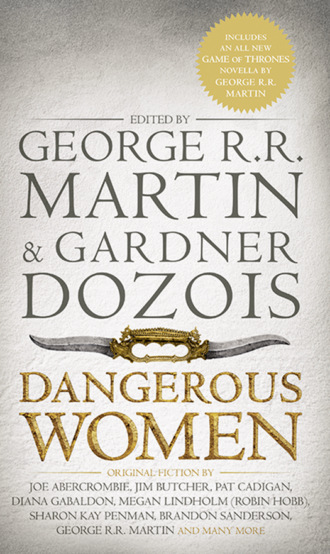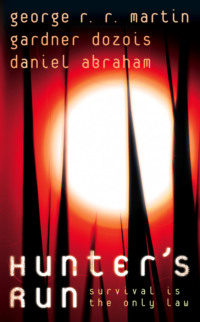
Полная версия
Dangerous Women
“Mr. Ferguson, did you know your wife spent three hours at Your Place Lounge on Charlevoix yesterday afternoon?”
“Are you following her?”
“Several patrons and one of the bartenders contacted us. They were concerned.”
“Concerned? Is that what they were?” His head was throbbing.
“Shouldn’t they be concerned, Mr. Ferguson? This is a woman whose baby is missing.”
“If they were so concerned, why didn’t they call me?”
“One of them asked Lorie if he could call you for her. Apparently, she told him not to.”
He looked at the detective. “She didn’t want to worry me.”
The detective looked back at him. “Okay.”
“You can’t tell how people are going to act when something like this happens to you,” he said, feeling his head dipping. Suddenly his shoulders felt very heavy and he had these pictures of Lorie in his head, at the far corner of the long black lacquered bar, eyes heavy with makeup and filled with dark feelings. Feelings he could never touch. Never once did he feel sure he knew what she was thinking. That was part of it. Part of the throb in his chest, the longing there that never left.
“No,” he said, suddenly.
“What?” the detective asked, leaning forward.
“She has no history of emotional problems. My wife.”
It was the fourth week, the fourth week of false leads and crying and sleeping pills and night terrors. And he had to go back to work or they wouldn’t make the mortgage payment. They’d talked about Lorie returning to her part-time job at the candle store, but somebody needed to be home, to be waiting.
(Though what, really, were they waiting for? Did toddlers suddenly toddle home after twenty-seven days? That’s what he could tell the cops were thinking.)
“I guess I’ll call the office tomorrow,” he said. “And make a plan.”
“And I’ll be here,” she said. “You’ll be there and I’ll be here.”
It was a terrible conversation, like a lot of those conversations couples have in dark bedrooms, late into the night, when you know the decisions you’ve been avoiding all day won’t wait anymore.
After they talked, she took four big pills and pushed her face into her pillow.
He couldn’t sleep and went into Shelby’s room, which he only ever did at night. He leaned over the crib, which was too small for her but Lorie wouldn’t use the bed yet, said it wasn’t time, not nearly.
He put his fingers on the soft baby bumpers, festooned with bright yellow fish. He remembered telling Shelby they were goldfish, but she kept saying Nana, nana, which was what she called bananas.
Her hands were always covered with the pearly slime of bananas, holding on to the front of Lorie’s shirt.
One night, sliding his hand under Lorie’s bra clasp, between her breasts, he felt a daub of banana even there.
“It’s everywhere,” Lorie had sighed. “It’s like she’s made of bananas.”
He loved that smell, and his daughter’s forever-glazed hands.
At some point, remembering this, he started crying, but then he stopped and sat in the rocking chair until he fell asleep.
In part, he was relieved to go back to work, all those days with neighbors and families and friends huddling in the house, trading Internet rumors, organizing vigils and searches. But now there were fewer family members, only a couple friends who had no other place to go, and no neighbors left at all.
The woman from the corner house came late one evening and asked for her casserole dish back.
“I didn’t know you’d keep it so long,” she said, eyes narrowing.
She seemed to be trying to look over his shoulder, into the living room. Lorie was watching a show, loudly, about a group of blond women with tight lacquered faces and angry mouths. She watched it all the time; it seemed to be the only show on TV anymore.
“I didn’t know,” the woman said, taking her dish, inspecting it, “how things were going to turn out.”
you sexy, sexy boy, Lorie’s text said. i want your hands on me. come home and handle me, rough as u like. rough me up.
He swiveled at his desk chair hard, almost like he needed to cover the phone, cover his act of reading the text.
He left the office right away, driving as fast as he could. Telling himself that something was wrong with her. That this had to be some side effect of the pills the doctor had given her, or the way sorrow and longing could twist in her complicated little body.
But that wasn’t really why he was driving so fast, or why he nearly tripped on the dangling seat belt as he hurried from the car.
Or why he felt, when he saw her lying on the bed, flat on her stomach and head turned, smiling, that he’d burst in two if he didn’t have her. If he didn’t have her then and there, the bed moaning beneath them and she not making a sound but, the blinds pulled down, her white teeth shining, shining from her open mouth.
It felt wrong but he wasn’t sure why. He knew her, but he didn’t. This was her, but a Lorie from long ago. Except different.
The reporters called all the time. And there were two that never seemed to leave their block. They had been there right at the start, but then seemed to go away, to move on to other stories.
They came back when the footage of Lorie coming out of Magnum Tattoo Parlor began appearing. Someone shot it with their cell phone.
Lorie was wearing those red cowboy boots again, and red lipstick, and she walked right up to the camera.
They ran photos of it in the newspaper with the headline: A Mother’s Grief?
He looked at the tattoo.
The words Mirame quemar written in script, wrapping itself around her hip.
It covered just the spot where a stretch mark had been, the one she always covered with her fingers when she stood before him naked.
He looked at the tattoo in the dark bedroom, a band of light coming from the hallway. She turned her hip, kept turning it, spinning her torso so he could feel it, all of it.
“I needed it,” she said. “I needed something. Something to put my fingers on. To remind me of me.
“Do you like it?” she asked, her breath in his ear. The ink looked like it was moving.
“I like it,” he said, putting his fingers there. Feeling a little sick. He did like it. He liked it very much.
Late, late into that night, her voice shook him from a deep sleep.
“I never knew she was coming and then she was here,” she was saying, her face pressed in her pillow. “And I never knew she was going and now she’s gone.”
He looked at her, her eyes shut, dappled with old makeup.
“But,” she said, her voice grittier, strained, “she was always doing whatever she wanted.”
That’s what he thought she said. But she was sleeping, and didn’t make any sense at all.
“You liked it until you thought about it,” she said. “Until you looked close at it and then you decided you didn’t want it anymore. Or didn’t want to be the guy who wants it.”
He was wearing the new shirt she had bought for him the day before. It was a deep, deep purple and beautiful and he felt good in it, like the unit manager who all the women in the office talked about. They talked about his shoes and he always wondered where people got shoes like that.
“No,” he said. “I love it. But it’s just … expensive.”
That wasn’t it, though. It didn’t seem right buying things, buying anything, right now. But it was also how colorful the shirt was, the sheen on it. The bright, hard beauty of it. A shirt for going out, for nightclubs, for dancing. For those things they did when they still did things: vodka and pounding music and frenzied sex in her car.
The kind of drunken sex so messy and crazy that you were almost shy around each other after, driving home, screwed sober, feeling like you’d showed something very private and very bad.
Once, years ago, she did something to him no one had ever done and he couldn’t look at her afterward at all. The next time he did something to her. For a while, it felt like it would never stop.
“I think someone should tell you about your wife,” the e-mail said. That was the subject line. He didn’t recognize the address, a series of letters and digits, and there was no text in the body of the e-mail. There was only a photo of a girl dancing in a bright green halter top, the ties loose and dangling.
It was Lorie, and he knew it must be an old picture. Weeks ago, the newspapers had gotten their hands on some snapshots of Lorie from her late teens, dancing on tabletops, kissing her girlfriends. Things girls did when they were drinking and someone had a camera.
In those shots, Lorie was always posing, vamping, trying to look like a model, a celebrity. It was a Lorie before he really knew her, a Lorie from what she called her “wild girl days.”
But in this picture she didn’t seem to be aware of the camera at all, seemed to be lost in the thrall of whatever music was playing, whatever sounds she was hearing in her crowded head. Her eyes were shut tight, her head thrown back, her neck long and brown and beautiful.
She looked happier than he had ever seen her.
A Lorie from long ago, or never.
But when he scrolled further down, he saw the halter top riding up her body, saw the pop of a hip bone. Saw the elegant script letters: Mirame quemar.
That night, he remembered a story she had told him long ago. It seemed impossible he’d forgotten it. Or maybe it just seemed different now, making it seem like something new. Something uncovered, an old sunken box you find in the basement smelling strong and you’re afraid to open it.
It was back when they were dating, when her roommate was always around and they had no place to be alone. They would have thrilling bouts in his car, and she loved to crawl into the backseat and lie back, hoisting a leg high over the headrest and begging him for it.
It was after the first or second time, back when it was all so crazy and confusing and his head was pounding and starbursting, that Lorie curled against him and talked and talked about her life, and the time she stole four Revlon eyeslicks from CVS and how she had slept with a soggy-eared stuffed animal named Ears until she was twelve. She said she felt she could tell him anything.
Somewhere in the blur of those nights—nights when he, too, told her private things, stories about babysitter crushes and shoplifting Matchbox cars—that she told him the story.
How, when she was seven, her baby brother was born and she became so jealous.
“My mom spent all her time with him, and left me alone all day,” she said. “So I hated him. Every night, I would pray that he would be taken away. That something awful would happen to him. At night, I’d sneak over to his crib and stare at him through the little bars. I think maybe I figured I could think it into happening. If I stared at him long enough and hard enough, it might happen.”
He had nodded, because this is how kids could be, he guessed. He was the youngest and wondered if his older sister thought things like this about him. Once, she smashed his finger under a cymbal and said it was an accident.
But she wasn’t done with her story and she snuggled closer to him and he could smell her powdery body and he thought of all its little corners and arcs, how he liked to find them with his hands, all the soft, hot places on her. Sometimes it felt like her body was never the same body, like it changed under his hands. I’m a witch, a witch.
“So one night,” she said, her voice low and sneaky, “I was watching him through the crib bars and he was making this funny noise.”
Her eyes glittered in the dark of the car.
“I leaned across, sticking my hands through the rails,” she said, snaking her hand towards him. “And that’s when I saw this piece of string dangling on his chin, from his pull toy. I starting pulling it, and pulling it.”
He watched her tugging the imaginary string, her eyes getting bigger and bigger.
“Then he let out this gasp,” she said, “and started breathing again.”
She paused, her tongue clicking.
“My mom came in at just that moment. She said I saved his life,” she said. “Everyone did. She bought me a new jumper and the hot-pink shoes I wanted. Everyone loved me.”
A pair of headlights flashed across them and he saw her eyes, bright and brilliant.
“So no one ever knew the real story,” she said. “I’ve never told anyone.”
She smiled, pushing herself against him.
“But now I’m telling you,” she said. “Now I have someone to tell.”
“Mr. Ferguson, you told us, and your cell phone records confirm, that you began calling your wife at 5:50 p.m. on the day of your daughter’s disappearance. Finally, you reached her at 6:45. Is that right?”
“I don’t know,” he said, this the eighth, ninth, tenth time they’d called him in. “You would know better than me.”
“Your wife said she was at the coffee place at around five. But we tracked down a record of your wife’s transaction. It was at 3:45.”
“I don’t know,” he said, rubbing at the back of his neck, the prickling there. He realized he had no idea what they might tell him. No idea what might be coming.
“So what do you think your wife was doing for three hours?”
“Looking for this woman. Trying to find her.”
“She did make some other calls during that time. Not to the police, of course. Or even you. She made a call to a man named Leonard Drake. Another one named Jason Patrini.”
One sounded like an old boyfriend—Lenny someone—the other he didn’t even know. He felt something hollow out inside him. He didn’t know who they were even talking about anymore, but it had nothing to do with him.
The female detective walked in, giving her partner a look.
“Since she was making all these calls, we could track her movements. She went to the Harbor View Mall.”
“Would you like to see her on the security camera footage there?” the female detective asked. “We have it now. Did you know she bought a tank top.”
He felt nothing.
“She also went to the quickie mart. The cashier just IDed her. She used the bathroom. He said she was in there a long time and when she came out, she had changed clothing.
“Would you like to see the footage there? She looks like a million bucks.”
She slid a grainy photo across the desk. A young woman in a tank top and hoodie tugged low over her brow. She was smiling.
“That’s not Lorie,” he said softly. She looked too young, looked like she looked when he met her, a little elfin beauty with a flat stomach and pigtails and a pierced navel. A hoop he used to tug. He’d forgotten about that. She must have let it seal over.
“I’m sure this is tough to hear, Mr. Ferguson,” the male detective said. “I’m sorry.”
He looked up. The detective did look very sorry.
“What did you say to them?” he asked.
Lorie was sitting in the car with him, a half block from the police station.
“I don’t know if you should say anything to them anymore,” he said. “I think maybe we should call a lawyer.”
Lorie was looking straight ahead, at the strobing lights from the intersection. Slowly, she lifted her hand to the edges of her hair, combing them thoughtfully.
“I explained,” she said, her face dark except for a swoop of blue from the car dealership sign, like a tadpole up her cheek. “I told them the truth.”
“What truth?” he asked. The car felt so cold. There was a smell coming from her, of someone who hasn’t eaten. A raw smell of coffee and nail polish remover.
“They don’t believe anything I say anymore,” she said. “I explained how I’d been to the coffee place twice that day. Once to get a juice for Shelby and then later for coffee for me. They said they’d look into it, but I could see how it was on their faces. I told them so. I know what they think of me.”
She turned and looked at him, the car moving fast, sending red lights streaking up her face. It reminded him of a picture he once saw in a National Geographic of an Amazon woman, her face painted crimson, a wooden peg through her lip.
“Now I know what everyone thinks of me,” she said, and turned away again.
It was late that night, his eyes wide open, that he asked her. She was sound asleep, but he said it.
“Who’s Leonard Drake? Who’s Jason whatever?”
She stirred, shifted to face him, her face flat on the sheet.
“Who’s Tom Ferguson? Who is he?
“Is that what you do?” he asked, his voice rising. “Go around calling men.”
It was easier to ask her this than to ask her other things. To ask her if she had shaken Shelby, if she had lied about everything. Other things.
“Yes,” she said. “I call men all day long, I go to their apartments. I leave my daughter in the car, especially if it’s very hot. I sneak up their apartment stairs.”
She had her hand on her chest, was moving it there, watching him.
“You should feel how much I want them by the time they open their doors.”
Stop, he said, without saying it.
“I have my hands on their belts before they close the door behind me. I crawl onto their laps on their dirty bachelor’s sofas and do everything.”
He started shaking his head, but she wouldn’t stop.
“You have a baby, your body changes. You need something else. So I let them do anything. I’ve done everything.”
Her hand was moving, touching herself. She wouldn’t stop.
“That’s what I do while you’re at work. I wasn’t calling people on Craigslist, trying to replace your lawn mower. I wasn’t doing something for you, always for you.”
He’d forgotten about the lawn mower, forgotten that’s what she’d said she’d been doing that day. Trying to get a secondhand one after he’d gotten blood blisters on both hands using it the last time. That’s what she’d said she was doing.
“No,” she was saying, “I was calling men, making dates for sex. That’s what I do since I’ve had a baby and been at home. I don’t know how to do anything else. It’s amazing I haven’t been caught before. If only I hadn’t been caught.”
He covered his face with his hand. “I’m sorry. I’m sorry.”
“How could you?” she said, a strangle in her throat. She was tugging all the sheet into her hands, rolling it, pulling off him, wringing it. “How could you?”
He dreamt of Shelby that night.
He dreamt he was wandering through the blue-dark of the house and when he got to Shelby’s room, there was no room at all and suddenly he was outside.
The yard was frost-tipped and lonely looking and he felt a sudden sadness. He felt suddenly like he had fallen into the loneliest place in the world, and the old toolshed in the middle seemed somehow the very center of that loneliness.
When they’d bought the house, they’d nearly torn it down—everyone said they should—but they decided they liked it; the “baby barn,” they’d called it, with its sloping roof and faded red paint.
But it was too small for anything but a few rakes and that push lawn mower with the sagging left wheel.
It was the only old thing about their house, the only thing left from before he was there.
By day, it was a thing he never thought about at all anymore, didn’t notice it other than the smell sometimes coming off it after rain.
But in the dream it seemed a living thing, neglected and pitiful.
It came to him suddenly that the lawn mower in the shed might still be fixed, and if it were, then everything would be okay and no one would need to look for lawn mowers and the thick tug of grass under his feet would not feel so heavy and all this loneliness would end.
He put his hand on the shed’s cool, crooked handle and tugged it open.
Instead of the lawn mower, he saw a small black sack on the floor of the shed.
He thought to himself in the way you do in dreams: I must have left the cuttings in here. They must be covered with mold and that must be the smell so strong it—
Grabbing for the sack, it slipped open, and the bag itself began to come apart in his hands.
There was the sound, the feeling of something heavy dropping to the floor of the shed.
It was too dark to see what was slipping over his feet, tickling his ankles.
Too dark to be sure, but it felt like the sweet floss of his daughter’s hair.
He woke already sitting up. A voice was hissing in his head: Will you look in the shed? Will you?
And that was when he remembered there was no shed in the backyard anymore. They’d torn it down when Lorie was pregnant because she said the smell of rot was giving her headaches, making her sick.
The next day the front page of the paper had a series of articles marking the two-month anniversary of Shelby’s disappearance.
They had the picture of Lorie under the headline: What Does She Know? There was a picture of him, head down, walking from the police station yesterday. The caption read: “More unanswered questions.”
He couldn’t read any of it, and when his mother called he didn’t pick up.
All day at work, he couldn’t concentrate. He felt everyone looking at him.
When his boss came to his desk, he could feel the careful way he was being talked to.
“Tom, if you want to leave early,” he said, “that’s fine.”
Several times he caught the administrative assistant staring at his screen saver, the snapshot of Lorie with ten-month-old Shelby in her Halloween costume, a black spider with soft spider legs.
Finally he did leave, at three o’clock.
Lorie wasn’t in the house and he was standing at the kitchen sink, drinking a glass of water, when he saw her through the window.
Though it was barely seventy degrees, she was lying on one of the summer loungers.
Headphones on, she was in a bright orange bikini with gold hoops in the straps and on either hip.
She had pushed the purple playhouse against the back fence, where it tilted under the elm tree.
He had never seen the bikini before, but he recognized the sunglasses, large ones with white frames she had bought on a trip Mexico she had taken with an old girlfriend right before she got pregnant.
Gleaming in the center of her slicked torso was a gold belly ring.
She was smiling, singing along to whatever music was playing in her head.
That night he couldn’t bring himself to go to bed. He watched TV for hours without watching any of it. He drank four beers in a row, which he had not done since he was twenty years old.
Finally, the beer pulled on him, and the Benadryl he took after, and he found himself sinking at last onto their mattress.
At some point in the middle of the night, there was a stirring next to him, her body shifting hard. It felt like something was happening.
“Kirsten,” she mumbled.
“What?” he asked. “What?”
Suddenly she half sat up, her elbows beneath her, looking straight ahead.
“Her daughter’s name was Kirsten,” she said, her voice soft and tentative. “I just remembered. Once, when we were talking, she said her daughter’s name was Kirsten. Because she liked how it sounded with Krusie.”
He felt something loosen inside him, then tighten again. What was this?
“Her last name was Krusie with a K,” she said, her face growing more animated, her voice more urgent. “I don’t know how it was spelled, but it was with a K. I can’t believe I just remembered. It was a long time ago. She said she liked the two Ks. Because she was two Ks. Katie Krusie. That’s her name.”
He looked at her and didn’t say anything.
“Katie Krusie,” she said. “The woman at the coffee place. That’s her name.”
He couldn’t seem to speak or even move.
“Are you going to call?” she said. “The police?”
He found he couldn’t move. He was afraid somehow. So afraid he couldn’t breathe.
She looked at him, paused, and then reached across him, grabbing for the phone herself.
As she talked to the police, told them, her voice now clear and firm, what she’d remembered, as she told them she would come to the station, would leave in five minutes, he watched her, his hand over his own heart, feeling it beating so hard it hurt.









